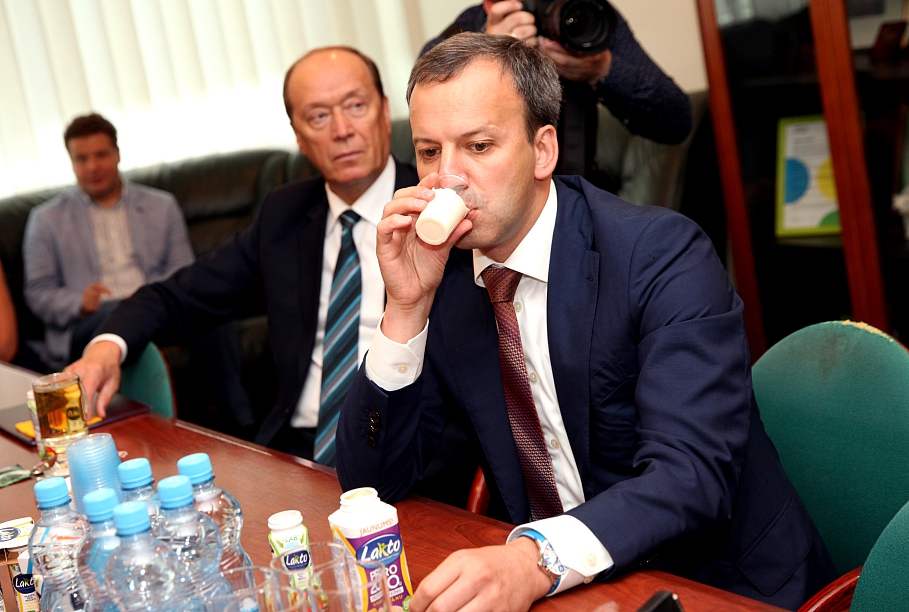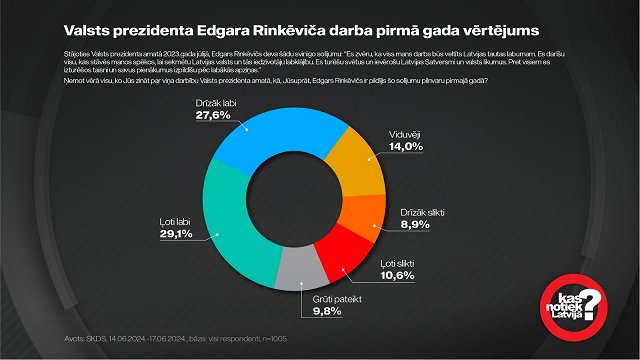Latvian media reported last week that Agriculture Minister Janis Duklavs, Transport Minister Uldis Augulis and Finance Minister Dana Reizniece-Ozola (all from the Greens and Farmers' Union political party) had meetings with Russian Deputy Prime Minister Arkady Dvorkovich at a fish canning plant in Riga.
The meeting was not on any ministerial agenda and the press were not informed about it.
However the information leaked out days later to online news portal skaties.lv and when confronted with a direct question about whether the meeting had taken place, Reizniece-Ozola confirmed it, saying the talks had been about such issues as sanctions, energy and rail transit - Dvorkovich also happens to be chairman of the board at Russian Railways.
The secret talks were instigated at the initiative of Duklavs, she said. Duklavs in turn said the talks were instigated by Russian ambassador to Latvia Aleksandr Veshnyakov.
As the Latvian Foreign Ministry is responsible for the Latvian-Russian intergovernmental cooperation commission - due to be discussed by cabinet August 16 - it might have been expected that a Foreign Ministry representative would also be in attendance.
However, the LETA newswire reported Monday that the Foreign Ministry had been kept in the dark about the four-way talks and was still waiting to be informed about what was discussed.
"Such talks are part of our foreign policy, but at the same time, it is important that the procedure of meetings between state officials is observed, regardless of whether these meetings are official or unofficial. The Foreign Ministry has to be informed about such meetings," said Rinkevics.
"Our foreign policy principles have been laid out in the government declaration. Of course, such unusual meetings do not, and will not, affect our principled position on the sanctions," claimed Rinkevics.
Agriculture Minister Duklavs had told the Foreign Ministry that he could have a meeting with Dvorkovich, but the ministry had no information that two more ministers would participate in the meeting, added Rinkevics.
When asked if Russian officials have had similar meetings with officials from the other two Baltic countries, Rinkevics said that Russian diplomats and politicians were involved in active talks with all European Union member states, but the level of these talks differed from one EU country to another.
Prime Minister Maris Kucinskis (also of the Greens and Farmers Union) said Monday he had been made aware of the meeting.
However, news that Latvian ministers are discussing such sensitive issues as sanctions with senior Kremlin figures and forgetting to mention the fact even to their cabinet colleagues is unlikely to impress Latvia's EU partners.
The leak about the secret meeting likely also pleased Riga mayor Nils Usakovs who was quite open about meeting with Dvorkovich and invited TV cameras to his office as the pair discussed possibilities of marketing Latvian food in Russia if and when sanctions are lifted.
Usakovs received considerable criticism for staging the meeting (also at the instigation of Veshnyakov), but at least it was in the public domain.




























